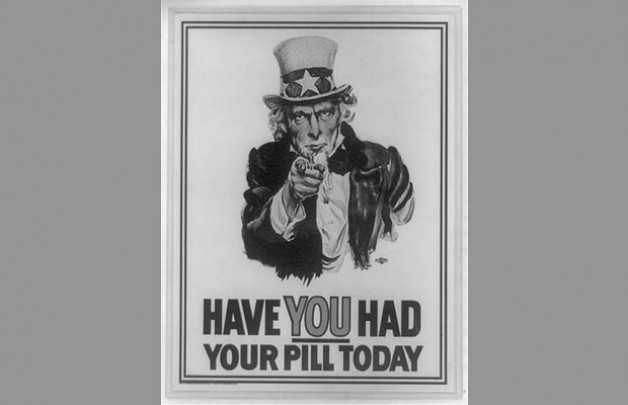Nearly two years have passed since the Patient Protection and Affordable Care Act—the centerpiece of what is sometimes referred to as “Obamacare”—ushered in the promise of universal healthcare coverage. While legislators, regulators, and the President himself have acknowledged that the legislation is less than perfect, the law’s proponents continue to argue that, by ensuring the sort of basic care necessary for sustaining general health, the bill represents a step in the right direction.
Under the provisions of the Act, much of the task of defining what constitutes “health care” was left to governmental regulators. For example, the law looks to the U.S. Department of Health and Human Services (HHS) to determine which drugs and services will qualify as “preventive” care.
Last Friday, HHS took a significant, if unfortunate, step in this process when it announced that, in its final set of rules, “preventive services for women” will include contraceptives, female sterilization procedures, and related “patient education and counseling for all women with reproductive capacity.” When this provision takes effect next year, all but a very narrow class of organizations and individuals will be compelled to purchase prescription coverage for contraception and female sterilization.
Who is exempt from compulsory participation in financing contraception and sterilization? Well, a “religious employer” is—but only under certain stringent conditions. First, the employer’s purpose must be to inculcate religious doctrine; second, it must hire and serve mainly people of its own faith; and, third, it must qualify as a church or religious order under a narrow section of the tax code. So, the good news is that the Dominican Studentate will not have to add to its expenses the cost of contraceptive and sterilization coverage—a sensible exemption in light of our commitment to celibacy. We’re safe, for now.
And who is not exempt? Basically everyone else, including Catholic universities, hospitals, and private individuals and institutions who harbor any objection, moral or otherwise, to the use of contraception and sterilization services, drugs, or devices. Naturally, many individuals and organizations, Catholic and non-Catholic alike, have objected to this encroachment on religious liberty and the rights of conscience. And rightly so. It’s shocking that institutions with names such as “Sacred Heart Hospital,” “Franciscan Alliance,” and “The Catholic University of America” will be compelled to fund contraception and female sterilization.
But there is an equally serious, largely unnoticed consequence of the HHS ruling. When it is combined with already existing legislation, it has a profound impact on parental rights.
While medical record privacy laws vary in some respects from state to state, it is generally the case that, under HIPAA (the federal medical record privacy law), a minor child can restrict access to his or her medical records, as long as the health care provider concurs in the minor’s judgment. Accordingly, a Catholic private business owner will not only be compelled to provide access to contraception for his or her minor daughter, but the daughter will be able to obtain prescription contraception without parental consent, or even a parent’s knowledge. Moreover, because insurers will be required by law to provide access to these drugs and procedures for free—that is, without demanding so much as a co-payment on the part of the patient—a minor daughter will not even have to ask her parents for a few bucks before making a stop at the local community “health” clinic to pick up some birth control pills.
In the press release that accompanied the announcement about the new rules, HHS Secretary Kathleen Sebelius remarked, “Birth control…is the most commonly taken drug in America by young and middle-aged women.” Secretary Sebelius seems intent on ensuring that contraceptive use remains widespread and even expands, courtesy of the federal government. Never mind that they’re using your money, whether you like it not, and that they’re using it to violate not only your rights of conscience, but your parental rights as well.
As the two-year anniversary of the new healthcare law approaches, the feds are telling us that “health” care includes more than the treatment and prevention of illness and disease. They’re telling us it includes the prevention of new life.
✠
Image: Propaganda Poster for the Birth Control Pill, 1968







